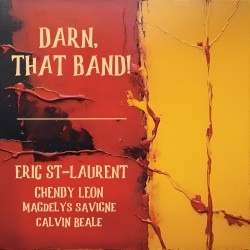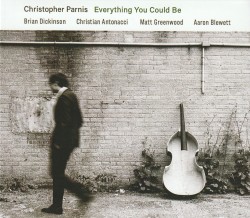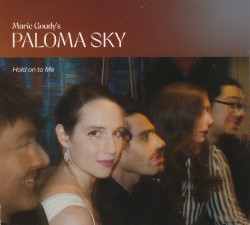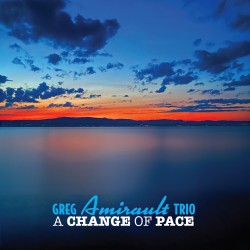Mosaic - Stefan Bauer; Terry Clarke; Matthew Halpin; Matthia Akeo Nowak
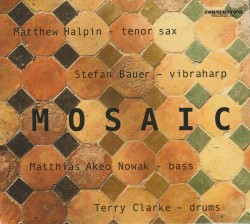 Mosaic
Mosaic
Stefan Bauer; Terry Clarke; Matthew Halpin; Matthia Akeo Nowak
Cornerstone Records CRST-CD169 (cornerstonerecordsinc.com/pages/cat169.html)
Improvising musicians from several generations would give a lot to perform with Terry Clarke, the éminence grise of Canadian drumming. He is one of the celebrated rhythm-twins (the other being Don Thompson, who plays bass, vibraphone or piano). Thompson and Clarke, some may remember, were effectively head-hunted by the celebrated alto saxophonist John Handy in the early 1960s and played in Handy’s seminal ensemble at the 1965 Monterey Jazz Festival. That ensemble released Recorded Live at the Monterey Jazz Festival (Columbia, 1966). For the unfettered and ingenious nature of the musicians’ improvisatory performance, Ralph J. Gleason (on album notes) called it “an exciting group and one that will make jazz history.”
It is this same epic excitement that Clarke & Co. evokes on Mosaic. The main story here is what Clarke calls “the sound of surprise,” quoting the legendary music critic Whitney Balliett. That brief quote is characteristic of the usually taciturn drummer. He is infinitely better at letting his drumsticks and brushes do the talking with a swinging rattle and roll on the shells and skins of his snare and tom-toms, punctuated by the depth charges on the bass drum and the sizzle and bop of the cymbals and high-hat. Indeed, Clarke gives us a drumming masterclass supported by bassist Matthias Akeo Nowak, vibraphonist Stefan Bauer and tenor saxophonist Matthew Halpin – together embodying “the sound of surprise” indeed.


